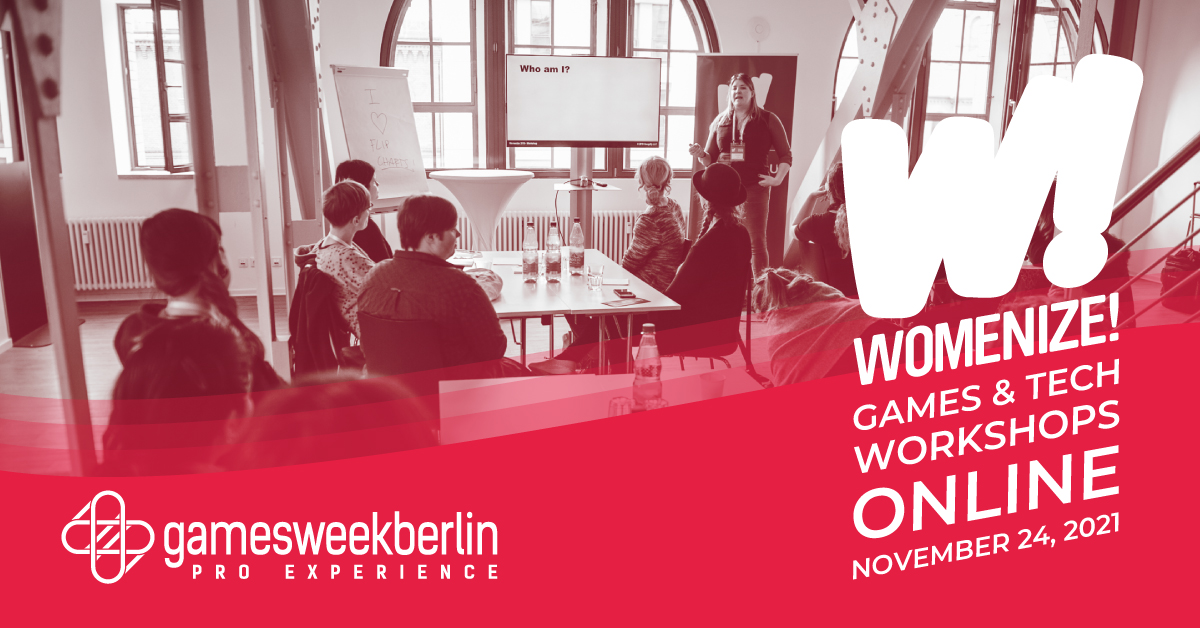Natasha Skult – Womenize! – Inspiring Stories
Womenize! – Inspiring Stories is our weekly series featuring inspirational women from games and tech. For this edition we talked to Natasha Skult, CEO at MiTale Games and chairperson of the IGDA (and much more!). Read more about Natasha in this interview:
Hi Natasha! On your website, you describe your work as traditional art meeting the latest gaming technologies. Could you elaborate on how this unique approach to your art came into existence by telling us more about your path into your games industry career?
With a background in traditional art, academic research and design, my work in the games industry includes a variety of senior roles – from concept artist and creative director to producer and appointed CEO of a company, leading to my current job as an entrepreneur.
Throughout my career, I have been helping as an International Game Developers Association (IGDA) Finland volunteer, organized countless events and been a driving force for initiatives that have made a positive impact in the community in the Nordics, especially Finland.
I am still teaching courses on topics of game design and game art (visual narrative practices in game development) at the University of Turku and occasionally contribute to academic publications as my schedule allows.
As a creative individual, who is also driven by data and building business strategies, I lead with the mindset that there is always a solution to the presented challenge. That is what we do as game developers – we solve issues presented to us, based on strong teamwork and trust. I often joke that I am “just a concept artist”, as my job is to build upon the vision set by the whole team.
You’re not only a game developer and studio founder, but are also passionate about supporting emerging games industry talents. Can you tell us more about the events and organizations you’re part of that help to achieve this goal?
My passion lies in empowering both individuals and teams in creating something truly meaningful! This is one of many reasons why I am still teaching and mentoring younger teams. I believe we all have our place in the gaming industry where our differences and uniqueness can shape the industry into a better and more united community. Games are experiences, behind every experience is a story worth telling and connecting to, therefore what excites me most is the opportunity to enable stories to be shared and voices to be heard.
IGDA and especially the game developers’ community in Finland (IGDA Finland) have a huge impact on my work and culture of sharing, especially in team-building and engaging with community practices by continuously developing and nurturing soft skills.
Any advice on how to manage a plethora of different jobs and projects simultaneously?
I personally cannot imagine not having at least 3-4 projects running simultaneously, and one really important aspect to succeed with such an approach is to make sure there is a silver-lining connecting all of them to some extent.
The beauty of game development is in its multidisciplinary approach, It is not just one particular skill/expertise required, but multiple ones that need to click together to develop the experience we are aiming for the players to have (although we just provide them with the “building blocks” and they are the actual creators of the fantasy). Therefore, try to have coherency between the projects that are running at the same time, and if it happens that some projects have nothing in common, then dedicate specific time (days, weeks) dedicated for one project and then switch to another, otherwise switching in shorter time will exhaust you fast as brain needs to adjust and get to the realm of project that requires full attention and creative energy.
This brings us to the second, very important skill to develop, and that is time management. Time is the most precious resource we have, and it is crucial to find your place in it. With trial and error, you can learn how long certain tasks may take you and that way you get more realistic in your estimations for the same/similar tasks of the future.
It is important to know your own strengths and weaknesses and with the rest of the team match theirs, so that you support each other in every step of the way. Trust your team and learn to aim for high quality of results but do not seek perfection – ever.
Thanks for taking the time to talk to us, Natasha!
Natasha’s Links: Website │ Twitter │ Company: Mitale


